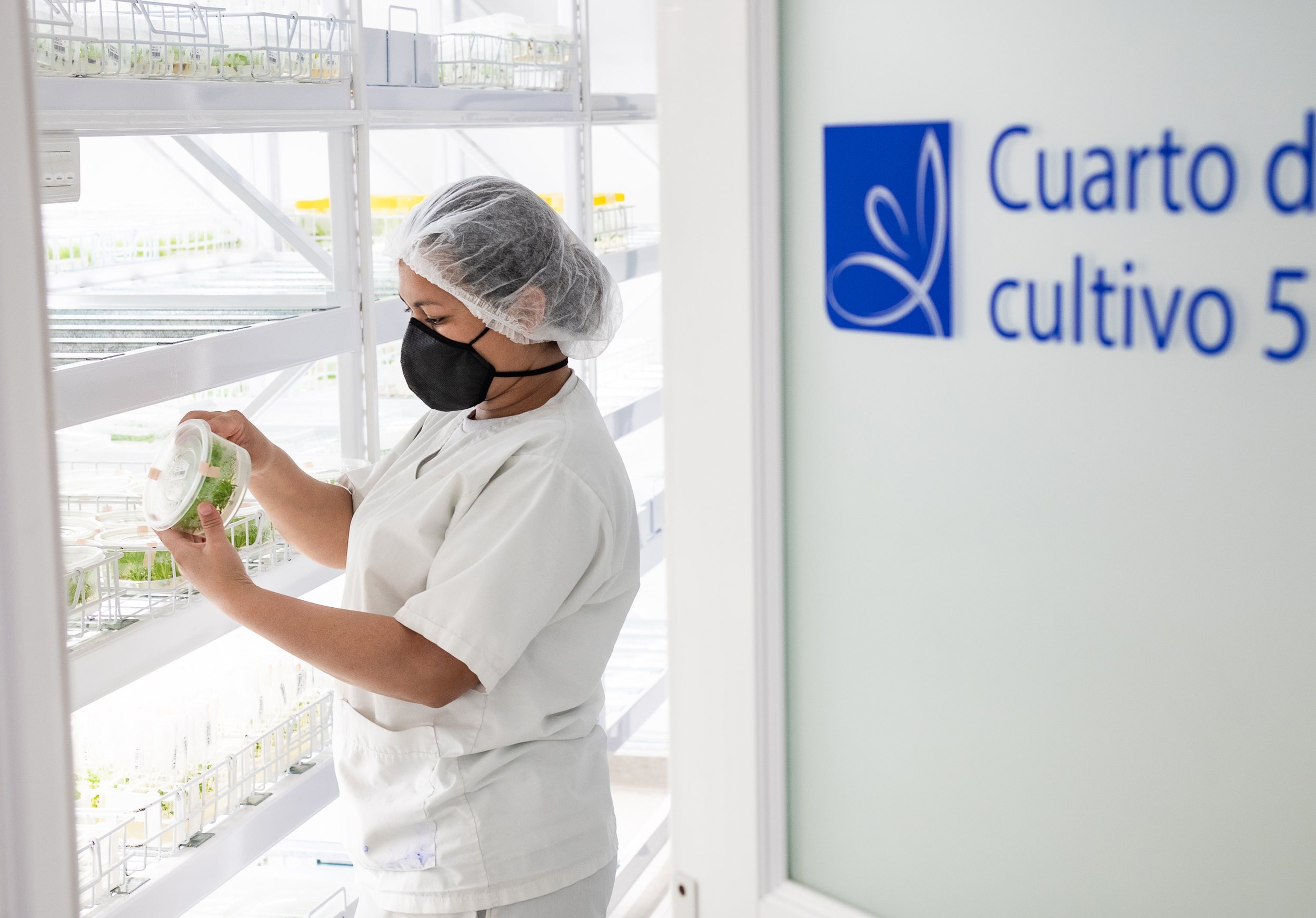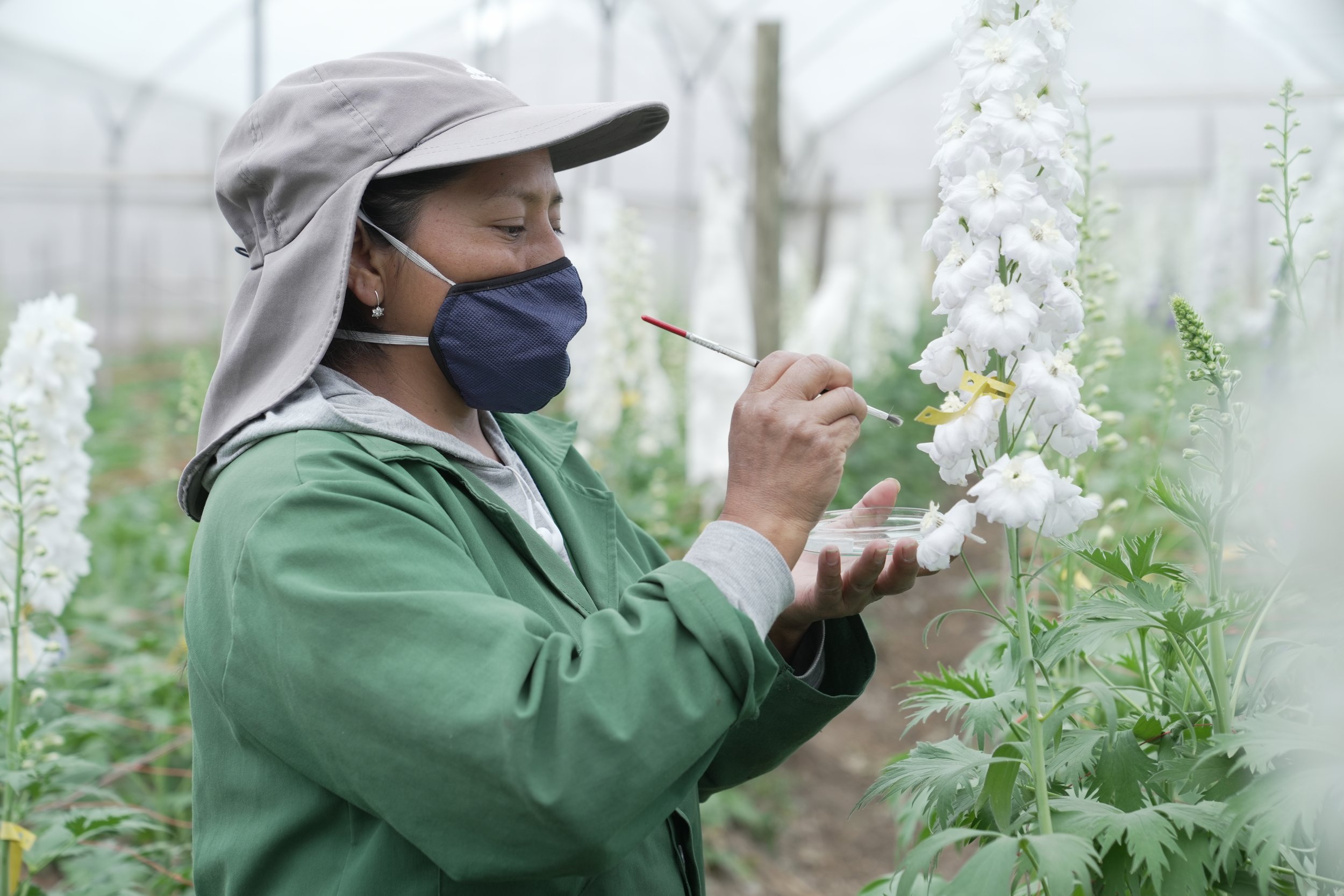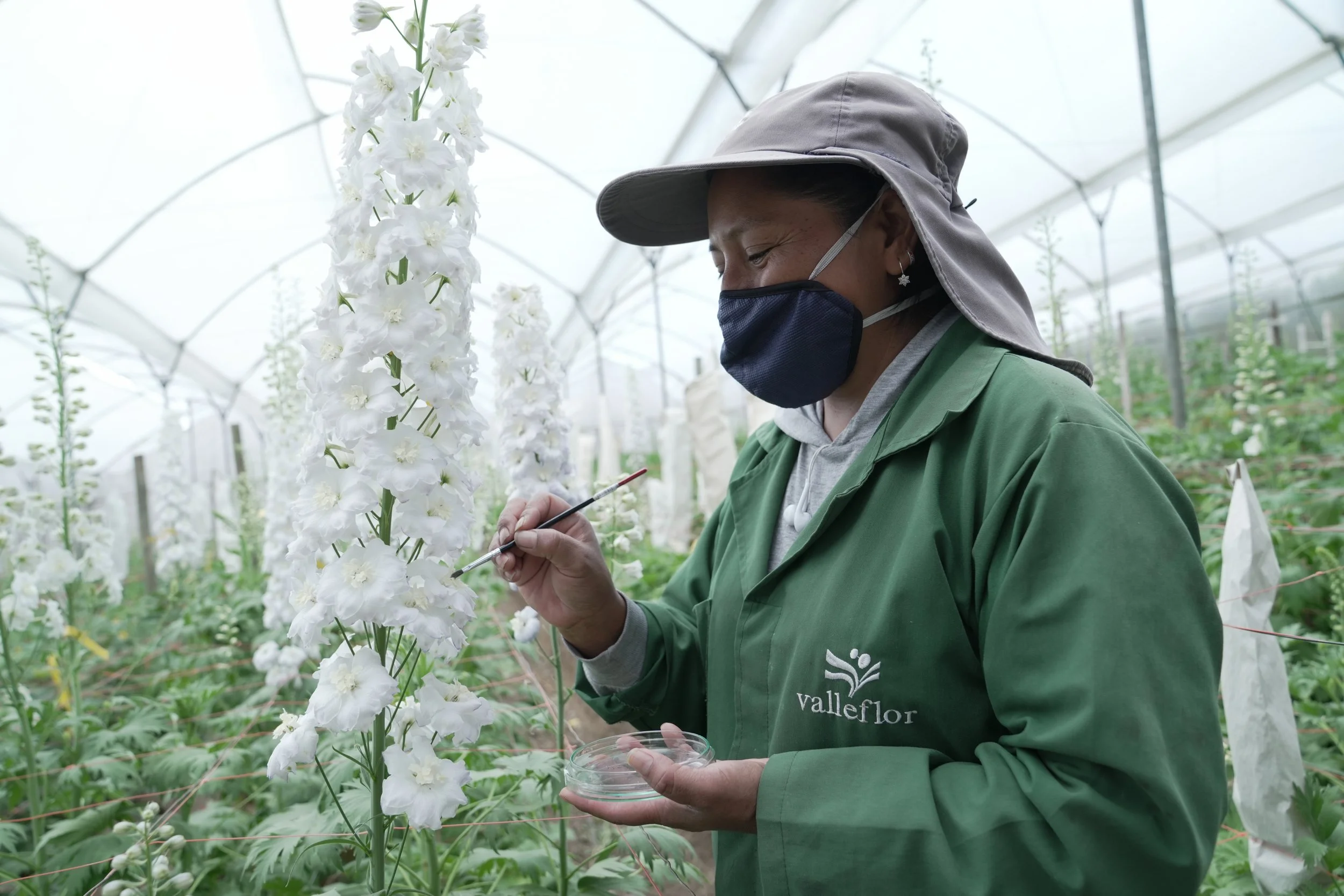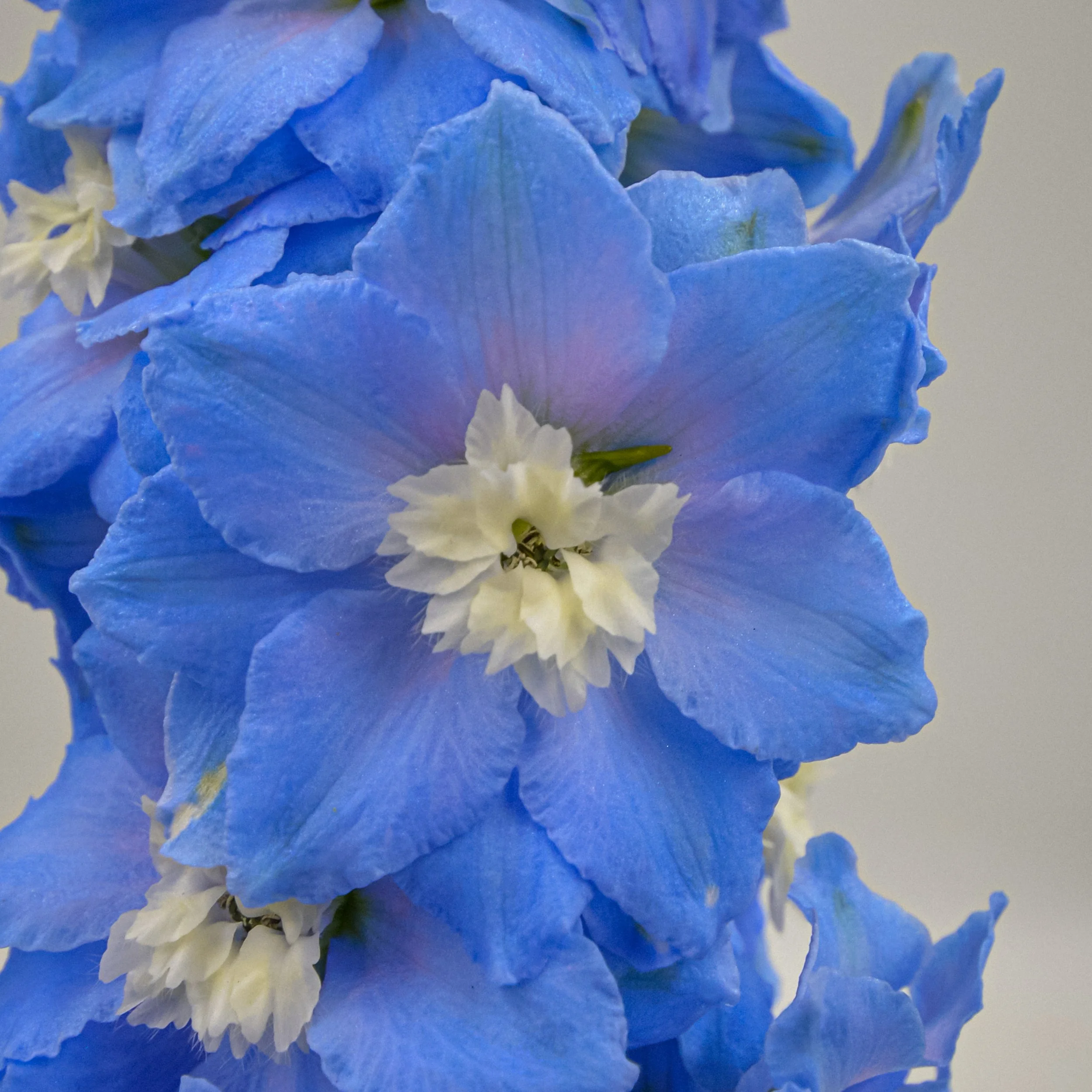
At a Glance
One of the key contributors to our success is our state-of-the-art breeding and genetics program that sets new standards in innovation and excellence. Our breeding process begins with identifying the most desirable traits in flowers, from unique color patterns to extended vase life. We employ selective breeding techniques that enable us to combine the best characteristics of different varieties, creating new individuals that possess unique beauty.
Breeding
Breeding is a technique that requires knowledge, technology, resources, and time. The main purpose of the breeding program at Valleflor is the creation of new varieties of Summer Flowers as Delphinium, Aster, Solidago and others. The process of creation of a new variety starts with the collection of germplasm. The broader the collection, the more variability can be found within the progeny.
For the crosses the best parentals are selected depending on the characteristics that are desired to be expressed in the offspring. The next phase is selection and evaluation where the offspring are submitted to several growing cycles.
Morphology and agronomic examination that includes productivity and vase life are tested. During this phase, the plants are introduced into the Tissue Culture Laboratory for multiplication.
Tissue Culture
We have all the certifications demanded by the regulatory offices, Agrocalidad and Ministry of Agriculture.
Tissue culture is a method of plant propagation done under sterile conditions in the laboratory.
The process begins in the field where clonal selection occurs. Clonal selection ensures that only the plants with the best characteristics are propagated in the laboratory. During this process many parameters are considered, varying from flower color to plant structure, productivity, and phytosanitary condition. Once the clones are marked and selected, the initiation material, called an explant, is ready to be transported to the laboratory.
In the laboratory, the explant must be disinfected to guarantee that microorganisms within the plant material are eliminated. Once this process is done, plants are placed into a sterile artificial medium supplemented with nutrients, hormones, and vitamins that the plants require for their appropriate development. Plants are grown in rooms with special conditions related to temperature, humidity, light intensity, and photoperiod.
Plants in the laboratory have relatively short growing cycles, making tissue culture a very valuable technique since you can have thousands of plants over a short period of time.
Tissue culture has many advantages over in vivo propagation. With tissue culture it is possible to obtain disease-free plants, it allows propagation over the entire year regardless of external climate conditions and it allows the optimization of space since a large number of plants are grown in a reduced space.
Every aspect and stage of plant propagation is strictly controlled and monitored.
Pre-Commercial Trials
As a final step of this rigorous evaluation process, validation needs to be done in the farms under commercial production conditions. Finally, a market study is required to confirm that the new variety will have an important commercial impact.




















